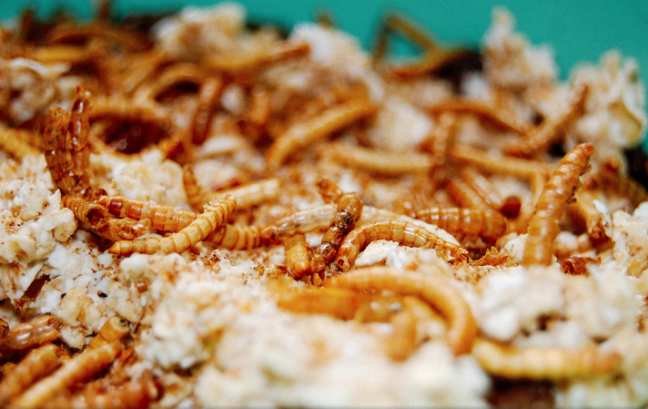Mealworms could solve world hunger — or at least two University of Wisconsin graduate students think it’s the place to start.
Valerie Stull and Rachel Bergmans created Mission to Improve Global Health Through Insects project, or MIGHTi, a plan to develop and distribute mealworm kits for agricultural use in Zambia, Africa. The project recently won the 2015 Climate Quest Competition at UW.
Bergmans said they want Zambians to learn how to build, care for and repair these kits on their own. She said their hope in making these kits is simply that Zambians can keep harvesting mealworms to provide themselves with an environmentally sustainable source of food.
Bergmans and Stull initially began the MIGHTi project in the fall of 2013. Prior to Climate Quest, they won funding from competitions like the Wisconsin Energy and Sustainability project and the Agricultural Innovation Prize, which granted them $25,000 to use for travel expenses.
Bergmans said a major goal of the project is to collaborate with the Zambian people to figure out a solution that works best for them and their lifestyle.
“Valerie and I have a strong belief in partnership, and our kits were inspired by this idea,” Bergmans said.
The mealworm kits that Bergmans and Stull created for this project come from locally sourced and affordable materials. The kits contain trays to hold the mealworms, covers to protect them from the weather and solar dryers, which process the worms to make them edible.
Bergmans said the MIGHTi project can have a significant impact on climate change issues. Mealworms produce fewer greenhouse gases than other food sources and do not produce any methane, she said.
“In the United States, there are already 26 companies that use insects in their products,” she said.
Mealworms also do not require an individual source of water because they get their water from the leaves and vegetables they consume. This is important for climate adaptation, she said, because when the world has less fresh water available, the water could be conserved for uses other than raising food. She also said mealworms help free up land resources because they like to be confined and raised in small, dark spaces.
The next step for the MIGHTi project, Bergmans said, is to conduct more research and look at the climate, health and social impacts of the project.
Darin Harris, the project leader of Climate Quest, said their mission is to find high impact projects that will be practical and affect climate change in a positive way. He said the projects that win make a difference and produce changes people can actually see.
“It’s time to stop talking, and time to start doing,” Harris said. “By adopting a project such as the MIGHTi project, it can be one of the most positive things humans can do for their environment and their bodies.”
Harris said winning the competition has provided the MIGHTi project with a lot of publicity. The competition prize will also help fund further research, he said.














